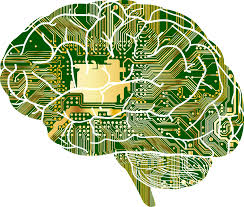Breathe in and think about a beginning. How to start a meditation on freedom? Do we have an entry point, a route that we can follow? Let’s clear our head of all that has been said about freedom. Smile. We are going to choose freely what we mean by freedom here. We are gaming ourselves. It is an existential.
So we are aware of Libet’s experiments. We raise our arm first, and the neurons that are associated with our decision to do so fire some milliseconds later. Our body decides, our consciousness follows and creates an evolutionarily useful internal theatre of the free will. It seems there is nothing more to say about the subject. What we call freedom is a certain fysiological dance of axons and dentrites.
Lo and behold! We have begun to find freedom ‘boring’. Can we still wonder about the ‘privateness’ of a phenomenon? We have been here a million times, we can accept that freedom is a ‘dance’ of the elements. Some philosophers have insisted that such dance needs to be indeterministic because that is how we experience our freedom. Something inside us must be god-like, they seem to think, for we are the creators of our inner worlds. Perhaps the quantum indecidibility is what makes freedom possible on an ontological level. The thought that whatever I will decide next was already ‘written in the stars’ contradicts our experience of freedom, and the latter certainly should count as a genuine source of knowledge?
Let’s breathe a bit more. Thinking is praxis. And so is a meditation on freedom! A deterministic view that we can hold about freedom can lead us to discard the concept of responsibility and punishment. This is of course simplistic and lacks the elegance of philosophical reasoning. The decision to get rid of punishment and the concept of responsibility itself is ‘inevitable’ or ‘automatic’ in this story. But if we decide nót to get rid of responsibility some causal chain must have lead to it and in this story we accept causal chains. What we are saying (intentionally in a vague way) is that such conclusions from the alleged absense of freedom require some sort of ‘loyalty’ to a perceived truth. But loyalty is a concept of the same category these thinkers want to get rid of!
We close our eyes. Breathe again. We defend, against all too quick naturalists, the enigma of our freedom. When we say it is a ‘necessary illusion’ we don’t mean this lightly. Can intelligent machines experience freedom? Imagine a robot that has passed the Turing test. I think we can never tell, just like our human freedom must remain an enigma for each other. This humanist consideration would be an argument in favor of some legal status of machines that can interact like humans. I find this a hard discussion.
It is time to get up. Feel our living bodies again. Practise awareness. The freedom that we mean is the experience, not of an abstract moment in which we can or can not lift our hand, but the experience of a fulfilled life.

One thought on “Meditation on freedom”
Comments are closed.